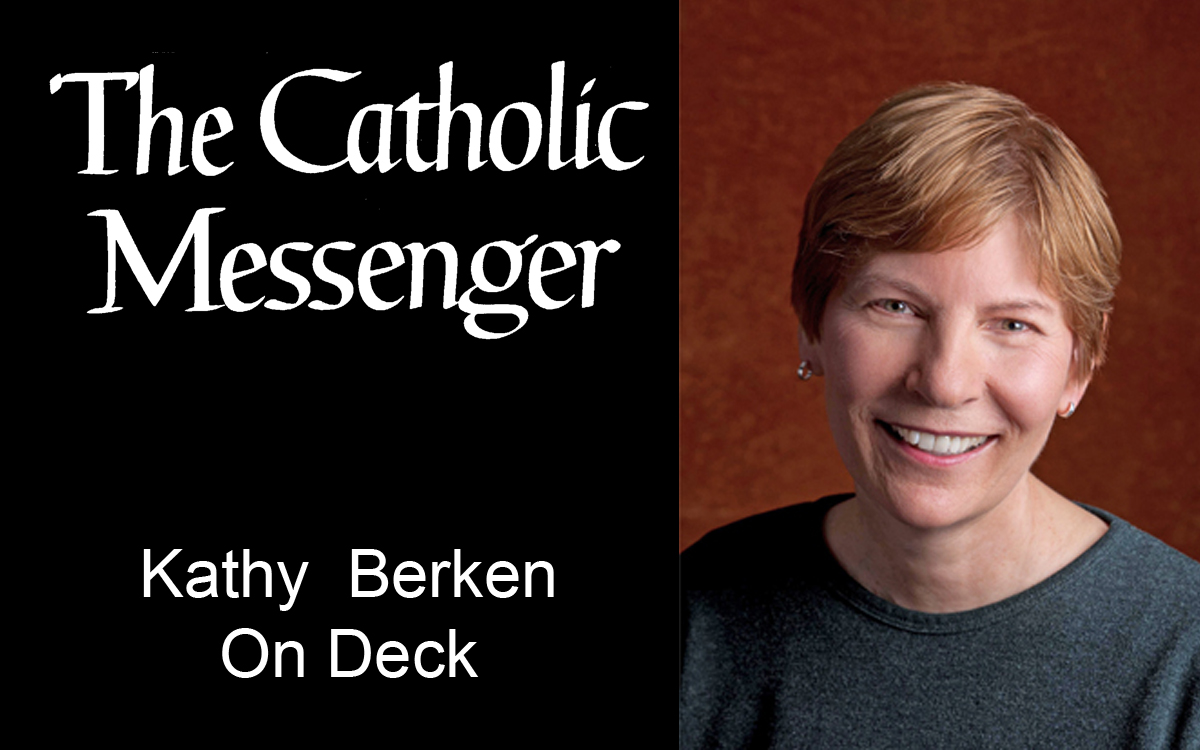By Kathy Berken
By now you probably have heard the story about the Starbucks manager in Philadelphia — who happened to be white — who called 911 to report that two men — who happened to be black —were trespassing. As a result of this brief snapshot and the protests that followed, the men were arrested and the manager fired.
 I have a problem with this story and the fallout it has been producing. What do we know about any of the people involved: the woman, the two men, the police officers? Probably almost nothing short of what we read in the papers and what we gleaned from the brief video on social media. As a result of the incident, Starbucks will close 8,000 of its stores for an afternoon of racial-bias training for its 175,000 employees.
I have a problem with this story and the fallout it has been producing. What do we know about any of the people involved: the woman, the two men, the police officers? Probably almost nothing short of what we read in the papers and what we gleaned from the brief video on social media. As a result of the incident, Starbucks will close 8,000 of its stores for an afternoon of racial-bias training for its 175,000 employees.
My problem is the frustration I felt when so many people I knew jumped to conclusions about the store manager, the men and the police. I felt cheated out of the opportunity to know more information about these people, their histories, their upbringing, their fears and insecurities, their own cultural expectations and understanding about others.
So this takes me back to a talk by novelist Chimamanda Adichie titled “The Danger of the Single Story,” given at a 2009 TED conference in England. The danger, she said, is that upon hearing only a single story about a person or country, we risk critical misunderstanding, which can cause suffering and harm.
Ms. Adichie learned that lesson growing up in Nigeria. The daughter of a professor and an administrator, she was given only British and American books to read, and so the stories she wrote were about the stereotypes she encountered in those books. She knew nothing about the complexities of life anywhere but her home country. Then when she came to the United States for college, her roommate, knowing nothing about Nigeria, assumed that Ms. Adichie must have lived in the jungle and knew only tribal music. Both women’s assumptions were wrong. And dangerous, because as TV sitcom “Roseanne’s” Dan Connor said — warning his grandson who likes to wear girls’ clothing — that he could face potential bullying, “What you don’t understand, you beat the crap out of.”
Fortunately for both Ms. Adichie and her roommate, they learned about each other’s cultures and began to have a deeper appreciation of their lives.
So when we create a single story, showing a people “as one thing, as only one thing, over and over and over again, that is what they become,” Ms. Adichie said. “The single story creates stereotypes, and the problem with stereotypes is not that they are untrue, but that they are incomplete. They make one story become the only story.”
When one of my friends became a grandma, her life changed. Suddenly typecast as Grandma, she received only grandma-related gifts and cards, as if her professional and personal interests disappeared into the single story of “Grandma.”
“[The single story] robs people of dignity,” Ms. Adichie said. “It makes our recognition of our equal humanity difficult. It emphasizes how we are different rather than how we are similar.”
In the Starbucks incident, I witnessed people taking sides, judging, justifying, rationalizing and maligning all in the same breath. Has anyone stopped to dig deeper? Do we know anything about any of the characters in this story? What may cause them to act a certain way? What are their thoughts and feelings about social situations in America?
Ms. Adichie says that people’s stories matter. “Stories can break the dignity of a people, but stories can also repair that broken dignity.”
Author Stephen Covey wrote, “Most people do not listen with the intent to understand; they listen with the intent to reply.” When we read a headline, hear a sound bite, watch a 30-second news video, does God invite us to understand, to find compassion, or simply to reply?
(Kathy Berken has a master’s degree in theology from St. Catherine University, St. Paul, Minn. She lived and worked at The Arche, L’Arche in Clinton 1999-2009 and is author of “Walking on a Rolling Deck: Life on the Ark (stories from The Arch).”)











